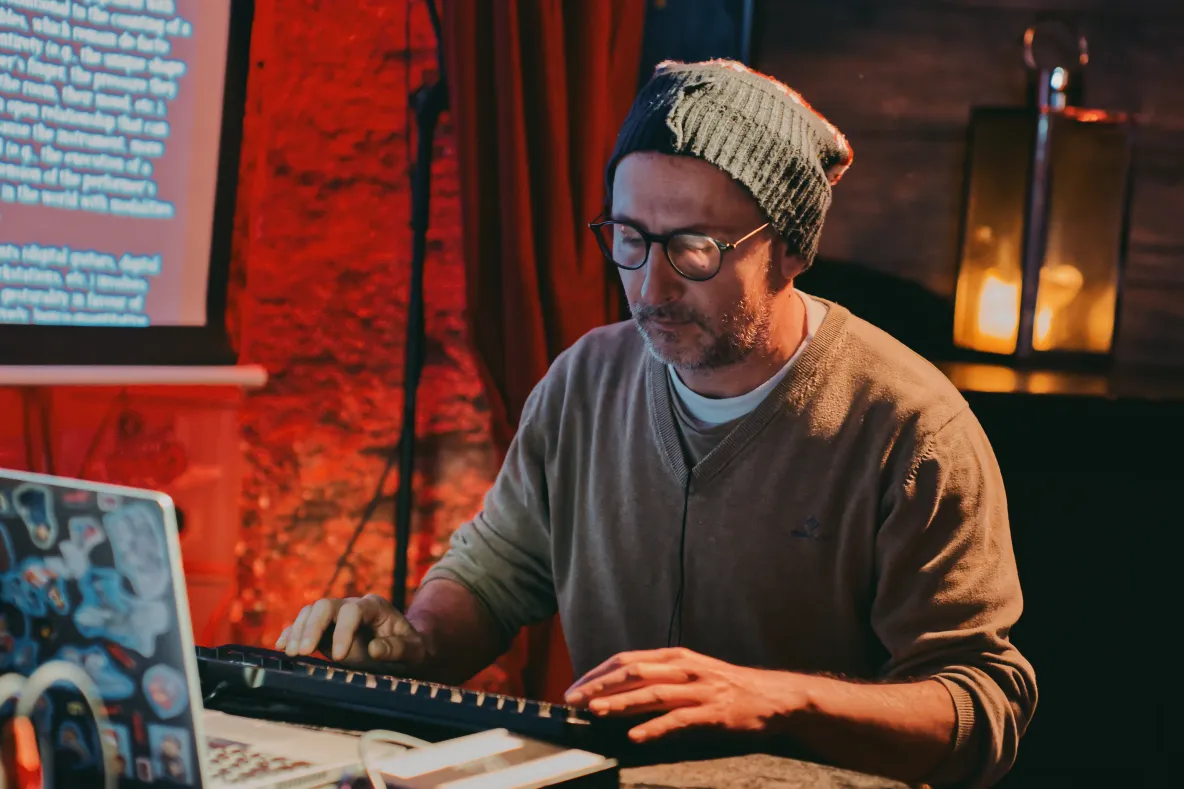

Composer, multimedia artist and software engineer, Dr Giuseppe Torre of the Digital Media and Arts Research Centre (DMARC) at UL’s Department of Computer Science and Information Systems has published a new work entitled “Incidental Effects” under his artistic name “handsandnumbers”.
This electronic music composition is part of Dr Torre’s research output as an Associate Professor of Digital Art Practices at DMARC. It has received an international release as an EP on Stochastic Resonance, a music label based in Rome that gathers a distinguished roster of international artists of experimental music.
Dr Torre’s area of research spans digital art practices, philosophy and technology. “My research interests lie at the crossings between digital art, philosophy, and free open-source culture. The leading question orienting my activities as an artist and as an academic is: what is the relationship between numbers and self?” he explains.
Incidental Effects is a three-part live-coding composition with each part constructed on one sound only and created using free open-source software. Live coding is a music performance practice in which the performer creates music by typing and manipulating lines of code in real time and in front of an audience.
“With Incidental Effects, I wanted to create music by getting as close as possible to those digital numbers, and my way in was coding. In ways similar to how any musician acts on their instrument, the computer keyboard becomes my instrument through which lines of code are typed and modified in a program.
“I created music by simply adding, editing or removing lines of code throughout the length of a performance. That is how Incidental Effects has been created,” Dr Torre added.
As an active digital art practitioner, Dr Torre’s works and performances have been showcased nationally and internationally.
Dr Torres is course director on the BSc in Music, Media and Performance Technology, and also teaches on the MA/MSc in Interaction Design and the MSc in Artificial Intelligence courses at University of Limerick.
He is an advocate of FLOSS (Free and Libre Open Source Software) in the teaching and professional practice of all digital arts.
He is the author of two books - Interactive Art - An Incautious Definition (Blackwater, 2023) and An Ethico-Phenomenology of Digital Art Practices (Routledge, 2021).
The “Incidental Effects” EP is available to steam or download here.
Postal Address: Science & Engineering Faculty Office, Lonsdale Building, 1st Floor, University of Limerick, Limerick, Ireland
Email: scieng@ul.ie
Phone: +353 (0)61 202109 or +353 (0)61 202642